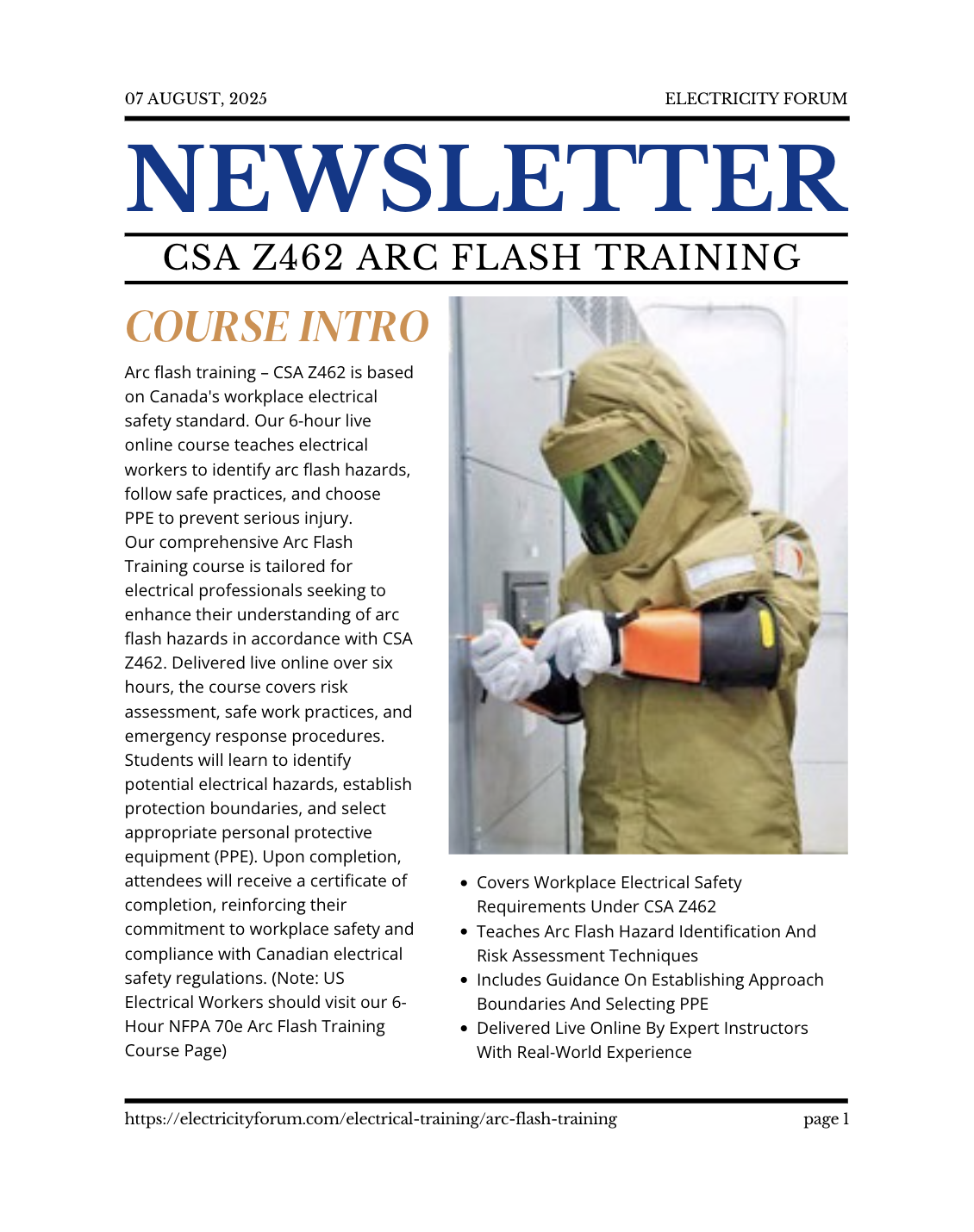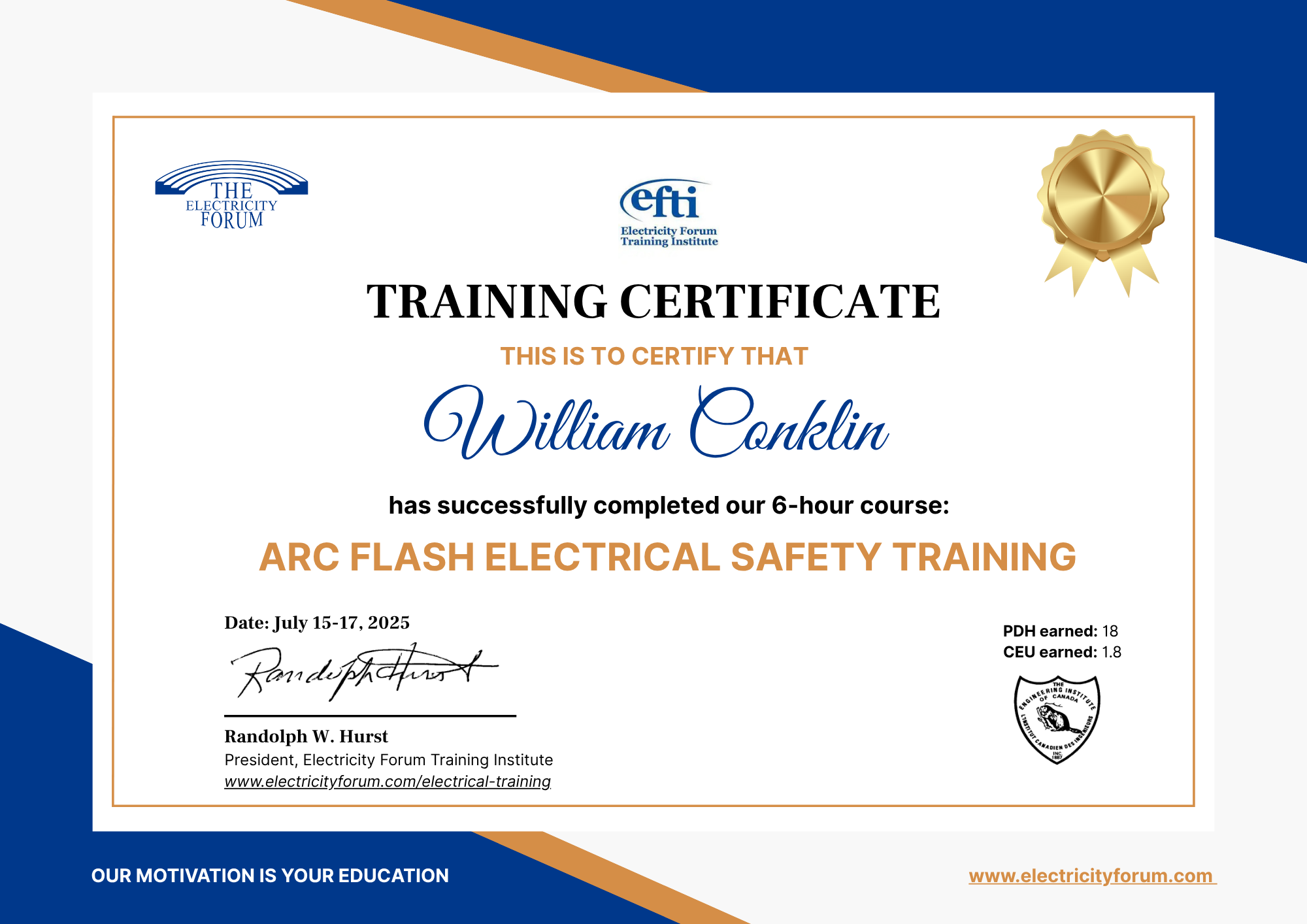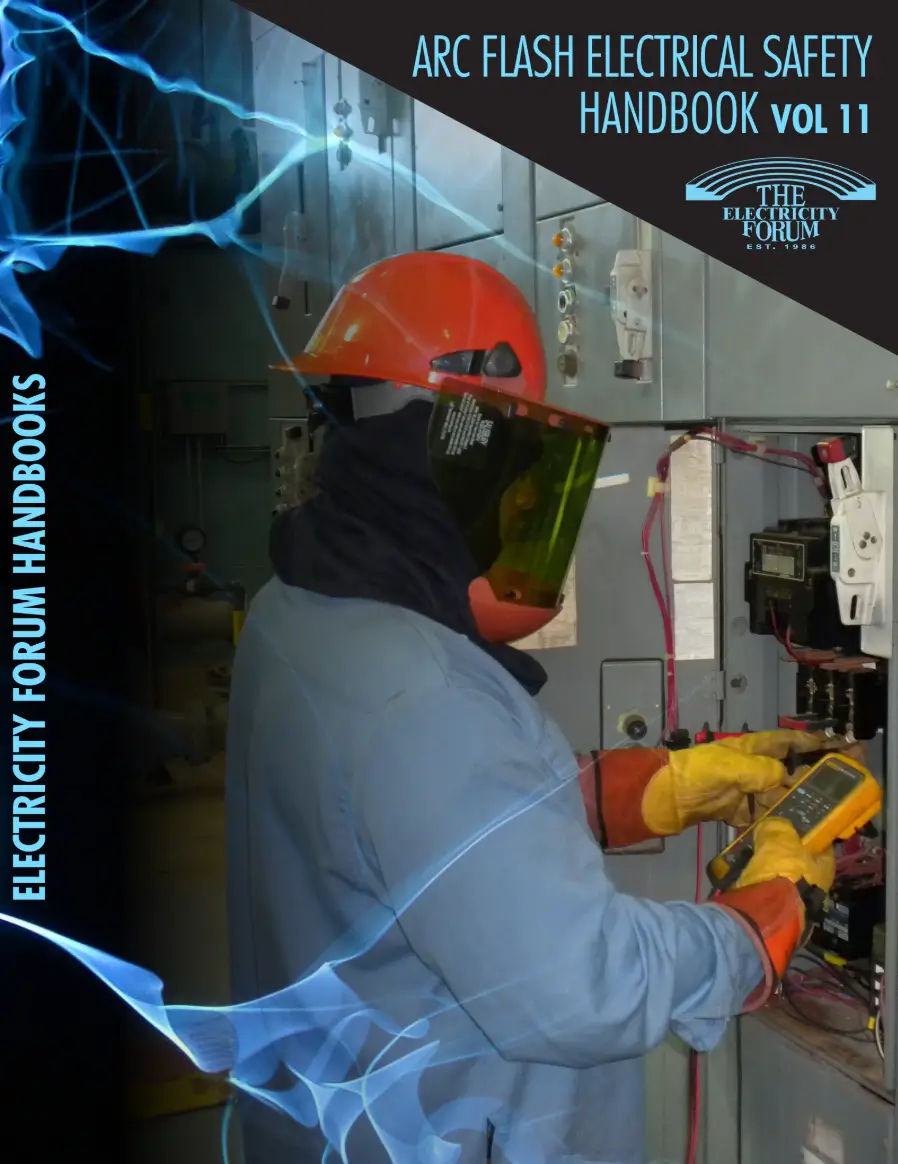Why OSHA Electrical Safety Training Matters
OSHA Electrical Safety Training teaches workers how to identify, control, and prevent hazards in accordance with OSHA 29 CFR 1910 Subpart S. Participants learn to apply NFPA 70E safe-work practices, select appropriate arc-rated PPE, perform hazard analysis, and maintain full compliance with federal safety requirements. The course emphasizes both shock and arc-flash hazard awareness, energization controls, and the responsibilities of qualified and unqualified workers.
Understanding OSHA Electrical Safety Requirements
The OSHA Electrical Standard (29 CFR 1910.302–308) establishes mandatory requirements for installations, wiring methods, grounding and bonding, overcurrent protection, and the safe operation of equipment in general industry. These regulations define electrical safety-related work practices for employees who work on or near energized systems, including minimum approach distances, exposure limitations, and the conditions under which energized work may be justified.
OSHA also requires employers to train workers on power circuits, the effects of electric shock, arc-flash and arc-blast hazards, temporary wiring, flexible cords, ground-fault protection, and the proper use of test instruments. Instruction must explain how to establish safe working conditions, verify the absence of voltage, and select the appropriate arc-rated PPE for various tasks. Upon completion, employees understand electrical hazards and learn to protect themselves through recognized safe-work practices.
Compliance Responsibilities for Employers
To comply with OSHA regulations, employers must provide electrical safety training tailored to the tasks, equipment, and hazards specific to their workplace. Instruction must be documented and periodically updated as standards, equipment, or working conditions change. Employers must also ensure that only qualified workers perform tasks near exposed energized conductors, that energized work permits are used when necessary, and that PPE is properly rated, available, and maintained.
Training applies to work involving power generation equipment, overhead and underground distribution systems, industrial machinery, and installations governed by OSHA 1910.269 and NESC applications. Employers and contractors should also be aware of substantial increases in OSHA’s penalty structure for violations, including the potential for enhanced criminal negligence enforcement when hazards are not properly controlled.
What This Course Covers
This course provides a comprehensive overview of electrical hazard analysis, safe-work practices, and regulatory compliance. It includes instruction on identifying shock, arc-flash, and arc-blast hazards; assessing incident energy exposure; applying hierarchy of controls; performing lockout/tagout procedures; using ground-fault circuit interrupters (GFCIs); implementing grounding and bonding practices; and maintaining PPE and test equipment. The course also covers safe work planning, energized work justification, labeling and signage requirements, emergency response procedures, and visual inspection techniques for equipment.
Learning Outcomes
Upon completion of this course, participants will be able to:
-
Understand OSHA 29 CFR 1910 Subpart S electrical safety requirements.
-
Identify electrical hazards such as shock, arc flash, and arc blast.
-
Apply NFPA 70E safe-work practices and approach boundaries.
-
Select and use proper personal protective equipment (PPE).
-
De-energize equipment and verify absence of voltage safely.
-
Perform Lockout/Tagout (LOTO) procedures correctly.
-
Distinguish between qualified and unqualified workers.
-
Maintain OSHA-compliant instruction and documentation.
-
Promote a strong culture of electrical safety awareness.
Related Courses

















